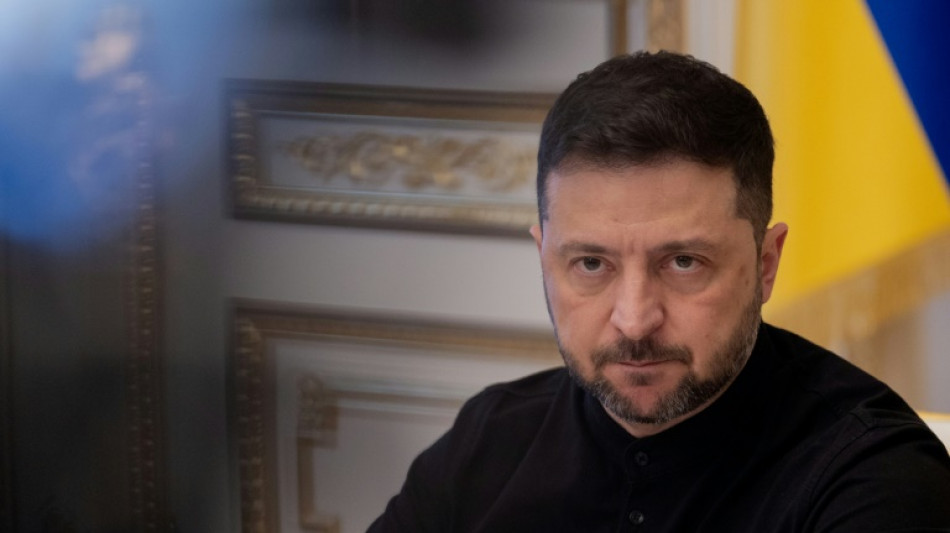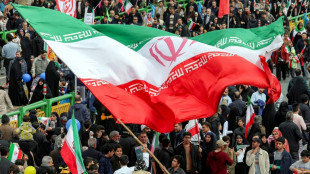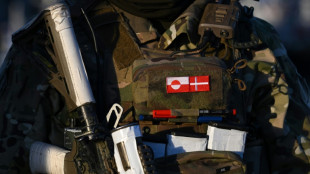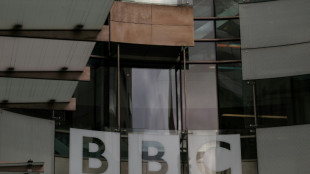
Backed by Brussels, Zelensky urges Orban to drop veto on EU bid

Ukraine's President Volodymyr Zelensky on Tuesday urged Hungarian leader Viktor Orban to stop blocking Kyiv's bid to join the EU, as Brussels backed advancing the war-torn country to the next step despite graft concerns.
Russia's invasion of Ukraine has breathed fresh life into long-stalled efforts to incorporate new members into the 27-nation bloc.
Brussels sees swelling its numbers as a geostrategic priority in the face of the Kremlin's aggression, with EU enlargement chief Marta Kos saying more countries was a "realistic possibility within the coming years".
Ten countries are currently angling to join the club -- though some, such as Turkey, are essentially frozen in their tracks.
Leading the pack of EU hopefuls are the Balkan duo Montenegro and Albania, while Ukraine and Moldova have made important strides after lodging their applications in 2022.
Kos said she wants the green light next month for Ukraine and Moldova to press on with formal negotiations, but Hungary's Russia-friendly leader Orban has been stalling on Kyiv's bid.
"We are at war for our survival, and we would really like the prime minister of Hungary to support us, at least not block us," Zelensky told an event hosted by broadcaster Euronews.
In its annual report on the work being done by countries seeking to join, the EU's executive arm praised Kyiv for pressing on with critical reforms despite Russia's ongoing war.
But Brussels warned against "backsliding" on anti-corruption efforts after Zelensky was forced to reverse moves to curb the independence of agencies tackling graft amid discontent from his European backers.
Joining the EU involves years of painstaking negotiations and major reforms, and countries can be delayed by myriad points along the way.
EU officials have expressed fears that Orban could keep holding up Kyiv's bid until fraught elections in his homeland next year as he seeks to make it a wedge issue for voters.
"If the candidate states are delivering, and I have proof with this report that they are delivering, then the EU should deliver too," Kos said.
Frontrunner Montenegro says it wants to complete talks by the end of 2026, while Albania is pressing to wrap them up in 2027, and Ukraine and Moldova are eyeing 2028.
Even once a candidate country clears all negotiating hurdles, joining still requires unanimous support from the EU's existing member states.
- Georgia 'in name only' -
While there was positive feedback for some in the annual review, the picture for Caucasus nation Georgia was grim as the government has cracked down on opponents and shifted towards Moscow.
The EU has already de facto halted the country's bid despite widespread backing among the population for its European aspirations.
"In Georgia, the situation has sharply deteriorated, with serious democratic backsliding," Kos said. "The commission considers Georgia a candidate country in name only."
Elsewhere, she said, the pace of reforms in Serbia "has slowed down significantly" despite insistence from officials that Belgrade remains intent on joining.
While the EU eyes admitting more members in the coming years, it is also seeking to push ahead with reforms to ensure the bloc can still function.
Kos said that Brussels would seek to impose "stronger safeguards" in any future accession treaties signed with new countries to ensure they do not slide away from democracy once they are members.
The EU has learned a painful lesson as countries such as Hungary have stymied the bloc's working while backtracking on the rule of law.
Brussels is also weighing whether it should withhold from new members the right to veto decisions in areas like foreign policy for several years after they join.
O.Martin--SMC


 London
London

 Manchester
Manchester
 Glasgow
Glasgow
 Dublin
Dublin
 Belfast
Belfast
 Washington
Washington
 Denver
Denver
 Atlanta
Atlanta
 Dallas
Dallas
 Houston Texas
Houston Texas
 New Orleans
New Orleans
 El Paso
El Paso
 Phoenix
Phoenix
 Los Angeles
Los Angeles



